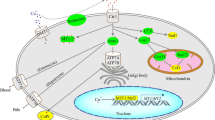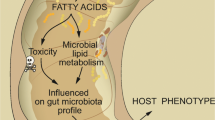Abstract
Maple Syrup Urine Disease (MSUD) is a metabolic disorder caused by a severe deficiency of the branched-chain α-keto acid dehydrogenase complex activity which leads to the accumulation of branched-chain amino acids (BCAA) leucine (Leu), isoleucine and valine and their respective α-keto-acids in body fluids. The main symptomatology presented by MSUD patients includes ketoacidosis, failure to thrive, poor feeding, apnea, ataxia, seizures, coma, psychomotor delay and mental retardation, but, the neurological pathophysiologic mechanisms are poorly understood. The treatment consists of a low protein diet and a semi-synthetic formula restricted in BCAA and supplemented with essential amino acids. It was verified that MSUD patients present L-carnitine (L-car) deficiency and this compound has demonstrated an antioxidant and anti-inflammatory role in metabolic diseases. Since there are no studies in the literature reporting the inflammatory profile of MSUD patients and the L-car role on the inflammatory response in this disorder, the present study evaluates the effect of L-car supplementation on plasma inflammatory cytokines interleukin-1β (IL-1β), interleukin-6 (IL-6), interferon-gamma (INF-ɣ), and a correlation with malondialdehyde (MDA), as a marker of oxidative damage, and with free L-car plasma levels in treated MSUD patients. Significant increases of IL-1β, IL-6, and INF-ɣ were observed before the treatment with L-car. Moreover, there is a negative correlation between all cytokines tested and L-car concentrations and a positive correlation among the MDA content and IL-1β and IL-6 values. Our data show that L-car supplementation can improve cellular defense against inflammation and oxidative stress in MSUD patients and may represent an additional therapeutic approach to the patients affected by this disease.



Similar content being viewed by others
Abbreviations
- MSUD:
-
Maple syrup urine disease
- BCKAD:
-
Branched chain α-keto acid dehydrogenase
- BCAA:
-
Branched-chain amino acid
- Leu:
-
Leucine
- BCKA:
-
Branched chain α-keto acids
- KIC:
-
α-ketoisocaproic acid
- L-car:
-
L-carnitine
- IL-1β:
-
Interleukin-1β
- IL-6:
-
Interleukin-6
- IFN -ɣ:
-
Interferon-gamma
- MDA:
-
Malondialdehyde
- ROS:
-
Reactive oxygen species
References
Amaral AU, Leipnitz G, Fernandes CG et al (2010) Alpha-ketoisocaproic acid and leucine provokemitochondrial bioenergetic dysfunction in rat brain. Brain Res 1324:75–84
Araújo P, Wassermann GF, Tallini K et al (2001) Reduction of large neutral amino acid levels in plasma and brain of hyperleucinemic rats. Neurochem Int 38:529–537
Barschak AG, Sitta A, Deon M et al (2007) Erythrocyte glutathione peroxidase activity and plasma selenium concentration are reduced in maple syrup urine disease patients during treatment. Int J Dev Neurosci 25:335–338
Bridi R, Araldi J, Sgarbi M et al (2003) Induction of oxidative stress in rat brain by the metabolites accumulating in maple syrup urine disease. Int J Dev Neurosci 21:327–332
Bridi R, Latini A, Braum CA et al (2005a) Evaluation of the mechanisms involved in leucine-induced oxidative damage in cerebral cortex of young rats. Free Radic Res 39:71–79
Bridi R, Braun CA, Zorzi GK et al (2005b) a-Keto acids accumulating in maple syrup urine disease stimulate lipid peroxidation and reduce antioxidant defenses in cerebral cortex from young rats. Metab Brain Dis 20:155–167
Brüne B, Dehne N, Grossmann N et al (2013) Redox control of inflammation in macrophages. Antioxid Redox Signal 19:595–637
Chace DH, Hillman SL, Van Hove JL, Naylor EW (1997) Rapid diagnosis of MCAD deficiency: quantitative analysis of octanoylcarnitine and other acylcarnitines in newborn blood spots by tandem mass spectrometry. Clin Chem 43:2106–2113
Chuang DT (1998) Maple syrup urine disease: it has come a long way. J Pediatr 132:17–23
Chuang DT, Shih VE (2001) Maple syrup urine disease (branched- chain ketoaciduria). In: Scriver CR, Beaudt AL, Sly WL, Valle D (eds) The metabolic and molecular bases of inherited disease. McGraw-Hill, New York, pp 1971–2005
Cuturic M, Abramson RK, Moran RR et al (2013) Serum carnitine levels and levocarnitine supplementation in institutionalized Huntington’s disease patients. Neurol Sci 34:93–98
De Simone R, Vissicchio F, Mingarelli C et al (2013) Branched-chain amino acids influence the immune properties of microglial cells and their responsiveness to pro-inflammatory signals. Biochim Biophys Acta 1832:650–659
Famularo G, De Simone C (1995) A new era for carnitine? Immunol Today 16:211–213
Famularo G, De Simone C, Trinchieri V, Mosca L (2004) Carnitines and its congeners: a metabolic pathway to the regulation of immune response and inflammation. Ann N Y Acad Sci 1033:132–138
Fontella FU, Gassen E, Pulronik V et al (2002) Stimulation of lipid peroxidation in vitro in rat brain by the metabolites accumulating in maple syrup urine disease. Metab Brain Dis 17:47–54
Foster DW (2004) The role of the carnitine system in human metabolism. Ann NY Acad Sci 1033:1–16
Frazier DM, Allgeier C, Homer C et al (2014) Nutrition management guideline for maple syrup urine disease: an evidence- and consensus-based approach. Mol Genet Metab 112:210–217
Guerreiro G, Mescka CP, Sitta A et al (2015) Urinary biomarkers of oxidative damage in maple syrup urine disease: the l-carnitine role. Int J Dev Neurosci 42:10–14
Gulcin I (2006) Antioxidant and antiradical activities of L-carnitine. Life Sci 78:803–811
Hatamkhani S, Karimzadeh I, Elyasi S et al (2013) Carnitine and sepsis: a review of an old clinical dilemma. J Pharm Pharm Sci 16:414–423
Hoffmann B, Helbling C, Schadewaldt P, Wendel U (2006) Impact of longitudinal plasma leucine levels on the intellectual outcome in patients with classic MSUD. Pediatr Res 59:17–20
Izgüt-Uysal VN, Ağaç A, Derin N (2003) Effect of L-carnitine on carrageenan-induced inflammation in aged rats. Gerontology 49:287–292
Jouvet P, Rustin P, Taylor DL et al (2000) Branched chain amino acids induce apoptosis in neural cells without mitochondrial membrane depolarization or cytochrome c release: implications for neurological impairment associated with maple syrup urine disease. Mol Biol Cell 11:1919–1932
Karatepe M (2004) Simultaneous determination of ascorbic acid and free malondialdehyde in human serum by HPLC–UV. LCGC N Am 22:362–365
Lugrin J, Rosenblatt-Velin N, Parapanov R, Liaudet L (2014) The role of oxidative stress during inflammatory process. Biol Chem 395:203–230
Malaguarnera M, Vacante M, Motta M et al (2011a) Acetyl-L-carnitine improves cognitive functions in severe hepatic encephalopathy: a randomized and controlled clinical trial. Metab Brain Dis 26:281–289
Malaguarnera M, Bella R, Vacante M et al (2011b) Acetyl-L-carnitine reduces depression and improves quality of life in patients with minimal hepatic encephalopathy. Scand J Gastroenterol 46:750–759
Mangge H, Becker K, Fuchs D, Gostner JM (2014) Antioxidants: inflammation and cardiovascular disease. World J Cardiol 6:462–477
Mescka CP, Wayhs CA, Vanzin CS (2013) Protein and lipid damage in maple syrup urine disease patients: l-carnitine effect. Int J Dev Neurosci 31:21–24
Muñoz A, Costa M (2013) Nutritionally mediated oxidative stress and inflammation. Oxidative Med Cell Longev 2013:610950
Muralidharan S, Mandrekar P (2013) Cellular stress response and innate immune signaling: integrating pathways in host defense and inflammation. J Leukoc Biol 94:1167–1184
Muriach M, Flores-Bellver M, Romero FJ, Barcia JM (2014) Diabetes and the brain: oxidative stress, inflammation, and authophagy. Oxidative Med Cell Longev 2014:102158
Pertosa G, Grandaliano G, Simone S et al (2005) Inflammation and carnitine in hemodialysis patients. J Ren Nutr 15:8–12
Reznick AZ, Kagan VE, Ramsey R et al (1992) Antiradical effects in L-propionyl carnitine protection of the heart against ischemia-reperfusiom injury: the possible role of iron chelation. Arch Biochem Biophys 296:394–401
Ribas GS, Vargas CR, Wajner M (2014) L-carnitine supplementation as a potencial antioxidant therapy for inherited neurometabolic disorders. Gene 533:469–476
Ribeiro CA, Sgaravatti AM, Rosa RB et al (2008) Inhibition of brain energy metabolism by the branched-chain amino acids accumu- lating in maple syrup urine disease. Neurochem Res 33:114–124
Scaini G, Morais MO, Galant LS et al (2014) Coadministration of branched-chain amino acids and lipopolysaccharide causes matrix metalloproteinase activation and blood–brain barrier breakdown. Mol Neurobiol 50:358–367
Schönberger S, Schweiger B, Schwahn B et al (2004) Dysmyelination in the brain of adolescents and young adults with maple syrup urine disease. Mol Genet Metab 82:69–75
Sgaravatti AM, Rosa RB, Schuck PF et al (2003) Inhibition of brain energy metabolism by the α-keto acids accumulating in maple syrup urine disease. Biochim Biophys Acta 1639:232–238
Shakeri A, Tabibi H, Hedayati M (2010) Effects of L-carnitine supplement on serum inflammatory cytokines, C-reactive protein, lipoprotein (a), and oxidative stress in hemodialysis patients with Lp (a) hyperlipoproteinemia. Hemodial Int 14:498–504
Sitta A, Ribas GS, Mescka CP et al (2014) Neurological damage in MSUD: the role of oxidative stress. Cell Mol Neurobiol 34:157–165
Strauss KA, Wardley B, Robinson D et al (2010) Classical maple syrup urine disease and brain development: principles of management and formula design. Mol Genet Metab 99:333–345
Szefel J, Kruszzewski WJ, Ciesielski M et al (2012) L-carnitine and cancer cachexia. II. Effects of lipid emulsion used in total parenteral nutrition on parameters of hemostasis and inflammatory state in L-carnitine deficiency in myocytes. Oncol Rep 28:324–329
Tavares RG, Santos CE, Tasca CI et al (2000) Inhibition of glutamate uptake into synaptic vesicles of rat brain by the metabolites accumulating in maple syrup urine disease. J Neurol Sci 181:44–49
Winter BK, Fiskum G, Gallo LL (1995) Effects of L-carnitine on serum triglyceride and cytokine levels in rat models of cachexia and septic shock. Br J Cancer 72:1173–1179
Zielke HR, Huang Y, Baab PJ et al (1997) Effect of alpha-ketoisocaproate and leucine on the in vivo oxidation of glutamate and glutamine in the rat brain. Neurochem Res 22:1159–1164
Acknowledgments
Very special thanks are dedicated to the physicians at the Medical Genetic Service of Hospital de Clinicas de Porto Alegre, families and patients who participated in this study. This work was supported in part by grants from FAPERGS, CNPq and FIPE/HCPA-Brazil.
Conflict of interest
The authors declare that there are no conflicts of interest.
Ethical approval
All procedures performed in studies involving human participants were in accordance with the ethical standards of the institutional and/or national research committee and with the 1964 Helsinki declaration and its later amendments or comparable ethical standards.
Author information
Authors and Affiliations
Corresponding author
Rights and permissions
About this article
Cite this article
Mescka, C.P., Guerreiro, G., Donida, B. et al. Investigation of inflammatory profile in MSUD patients: benefit of L-carnitine supplementation. Metab Brain Dis 30, 1167–1174 (2015). https://doi.org/10.1007/s11011-015-9686-9
Received:
Accepted:
Published:
Issue Date:
DOI: https://doi.org/10.1007/s11011-015-9686-9




